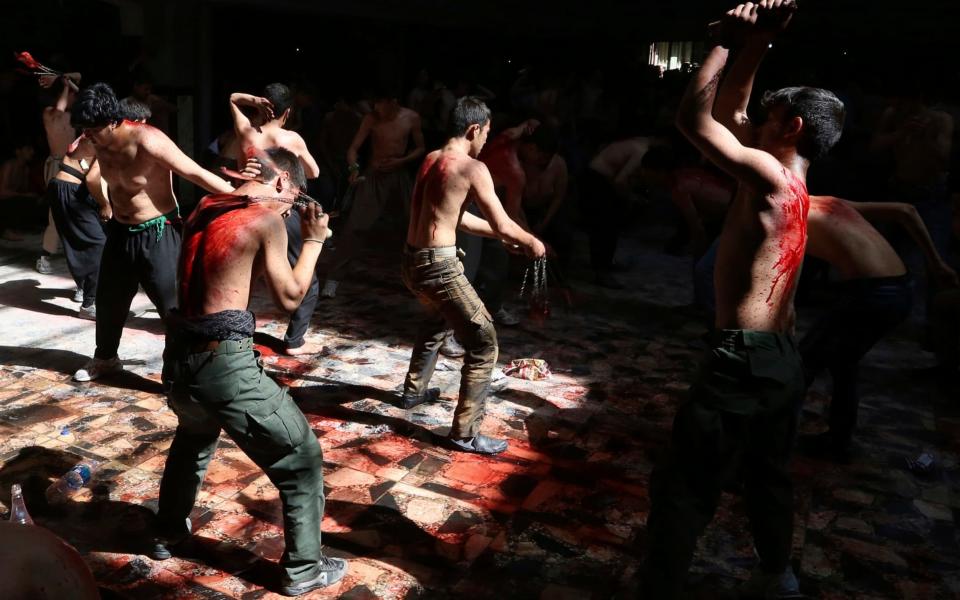Blood-borne viruses spread through self-flagellation, warn doctors

Doctors puzzled by how 10 British men caught a little-known virus have concluded they became exposed during religious self-flagellation, highlighting a new way to transmit blood-borne diseases.
The unnamed patients had all taken part in group Shia Muslim rituals cutting or scourging themselves in Iraq, Pakistan, India and the UK.
"There have been suggestions that you might spread infections through this route, but it has never been described before" in a published medical study, said Dr Divya Dhasmana of St. Mary's Hospital in London.
A paper published by the US Centres for Disease Control and Prevention said doctors could at first find no easy explanation for how the men were infected with human T-cell leukemia virus type 1 (HTLV-1).
The virus is typically spread via blood transfusions, sexual contact, breastfeeding and sharing needles. While most never develop and symptoms, some can go on to suffer blood cancer or a debilitating nervous system condition.
The men had each been diagnosed by screening programmes in the preceding years, or during routine tests such as before undergoing IVF, but showed none of the lifestyle factors typically associated with infection.

Dr Dhasmana solved the riddle when she noticed one of the men had scars on his back. She quickly found out that all of them had undergone religious self-flagellation. Many reported sharing blades.
Shia Muslims men sometimes flail themselves with bladed-chains or cut their foreheads in rituals during the religious festival of Ashura, which commemorates the martyrdom at Karbala of Hussein, a grandson of the Prophet Muhammad. The streets can be filled with processions of bloodstained men rhythmically striking themselves.
The bloodletting aims to emulate the suffering of Hussein, though some Shia leaders discourage it as backward.
Some Catholics can also self-flagellate as a penance for sin.
The blades and chains are often shared among men during the rituals. Doctors found one man had tried to take precautions, soaking the blades in an over-the-counter anti-sceptic, but that had apparently not been enough to stop the virus spreading.

“It is likely that either sharing blood-stained blades, reusing personal equipment after inadequate cleaning with a shared disinfectant, contact of infected blood with open wounds, or contact with infected medical equipment resulted in HTLV-1 transmission,” the research found.
The study said it was unknown how frequent such cases were, because screening clinics never asked about flagellation.
“All patients have been advised by medical practitioners not to share implements during self-flagellation and to encourage fellow practitioners of flagellation to be tested for blood-borne viruses,” the paper concluded.
Dr Dhasmana told AP: "Our message is not 'Don't do it.' Our message is 'If you do it, don't share equipment.'"
Protect yourself and your family by learning more about Global Health Security

 Yahoo News
Yahoo News 